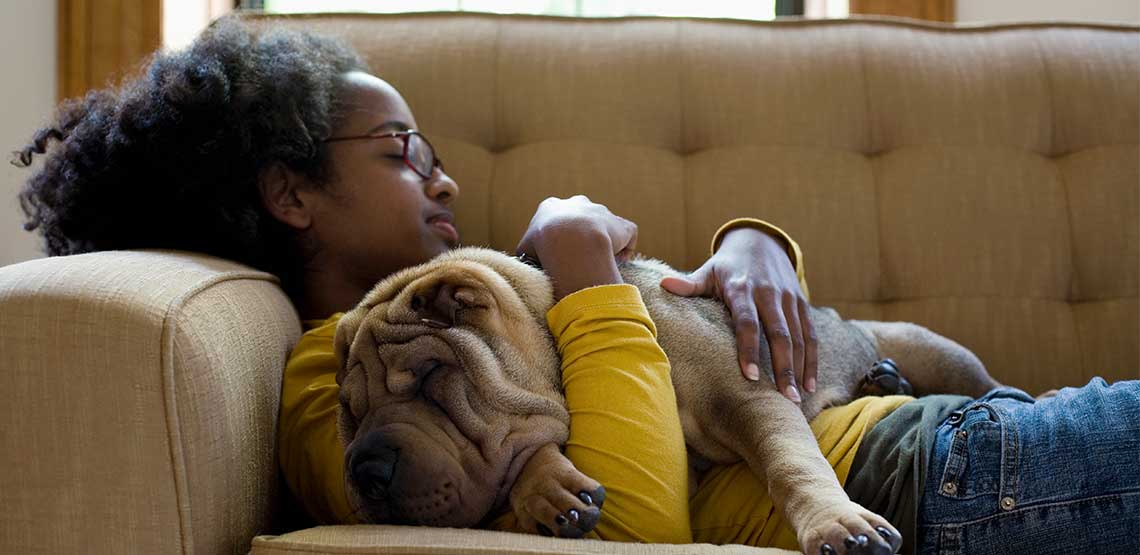Are Naps Good for You?
We are all well aware of the critical importance of sleep to our health and well-being. Whether we practice it or not, most of us know we should be getting at least seven to eight hours of sleep per night; this can contribute to better immunity, increased focus and productivity, a better mood, and more. But what about naps? Are naps good for you?
Ever felt yourself fighting the urge to dose off mid-day? Or accidentally falling asleep mid-day? It happens to all of us now and again, and if you’ve ever wondered if naps can replace ample sleep or where they fit into a healthy sleep schedule, let’s unpack those questions now.
The Consequences of Not Enough Sleep
Though we all know we should be sleeping more, between busy schedules, hectic work life balances, or caring for little ones, a full seven to eight hours each night isn’t always so easy to come by. In fact, the Center for Disease Control and Prevention estimates that one-third of Americans don’t even get seven hours per night.
We’re only beginning to understand the complete range of impact that too little sleep has on our health. You probably don’t need to be told how crucial sleep is though – we’ve all felt the negative effects of trying to make it through the day propped up on caffeine in the place of enough sleep.
If your choices are having that extra cup of coffee or taking a nap, definitely give yourself the shut eye your body is craving.
Health Benefits of Naps
While naps are often thought of as for toddlers or children, they can have benefits for the average adult as well. If you’re struggling to make it through the day on a regular basis, and relying on naps, it could be a sign that something is amiss with your nightly sleep. Having trouble getting enough sleep could be a sign of an underlying sleep issue, such as insomnia or sleep apnea. But if you feel that your sleep isn’t disrupted and you’re getting plenty, and still feel the need for a nap – take one!
Some of the benefits of taking a short, effective power nap include:
- Giving your brain some “time off" which can increase your performance and focus later on
- Relaxation, which has numerous benefits
- Increased alertness and overall mood
- Improved memory and reaction time
If you find yourself relying on a daily nap, again, take a good look at your nightly sleep schedule. But if you choose to take a short nap a couple times a week or every other day, do so! It can help you to rest up if you didn’t during the night, and it can restore both your energy levels and mental well-being.
Potential Negative Consequences of Naps
As stated, excessive naps or the need to nap can be a sign that your nightly sleep schedule isn’t what it should be. Aside from that, are there any “negatives" to napping in general?
Set an alarm and resist the urge to nap for hours. Stick to a 10 to 30-minute power nap window for maximum benefits. Napping for longer than this can disrupt your nightly sleep. Try to sleep earlier than 3pm as a general rule to avoid this. Napping for too long can create that feeling of grogginess one gets from sleeping for hours mid-day. (Have you ever napped for too long and felt almost jet-lagged? A nap should leave you feeling refreshed, so keep them brief.)
How to Nap for Maximum Benefit
As stated, there’s nothing wrong with a rejuvenating nap if you need them from time to time or even regularly in moderation.
To get the most bang for your buck and reap the benefits of a nap, keep it short, from 10 to 30 minutes. Though it may not feel like enough when that alarm goes off, you’ll be thankful later. On the other hand, a longer nap can often leave you feeling groggy or not tired enough to sleep properly through the night.
Also, pay attention to the atmosphere you are napping in. Keep your room dark and quiet so that your napping time is quality sleep.
Key Takeaway
To summarize, nothing will ever replace a good night’s sleep. There are numerous health and wellness benefits to getting seven to eight quality hours of uninterrupted, deep sleep. Whether you achieve this nightly or not though, a short, intentional nap can go a long way in refreshing our bodies and brains and improving our overall functioning.
